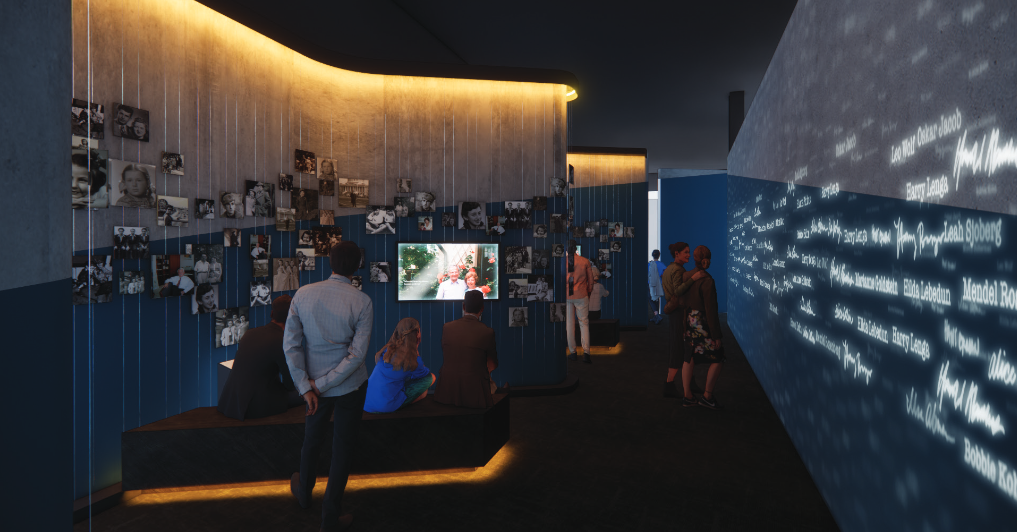Suspect in Fire at French Cathedral Is Arrested in Killing of a Priest
PARIS — A church volunteer awaiting trial in an arson incident last summer at a 15th-century cathedral was arrested on Monday after confessing to …

PARIS — A church volunteer awaiting trial in an arson incident last summer at a 15th-century cathedral was arrested on Monday after confessing to killing a Roman Catholic priest in the Vendée region in western France.
The suspect, who had a history of psychological problems, walked into a police station Monday morning in Mortagne-sur-Sèvre, a city in Vendée, to report the killing overnight of the priest whose body was discovered later by the police, prosecutors said.
The priest, the Rev. Olivier Maire, 60, was head of the Montfortain religious order, with whom the suspect had been staying.
The killing was not politically motivated, prosecutors said. But the identification of the suspect — a 40-year-old Rwandan named Emmanuel Abayisenga, whose application for asylum had been rejected and who had been facing deportation from France when the cathedral was set on fire last summer — immediately fueled criticisms of the country’s immigration laws by conservative and right-wing politicians.
The suspect had been invited to stay by Father Maire at a Montfortain residence in Saint-Laurent-sur-Sèvre, said the Rev. René Paul, also a priest in the Montfortain order. Father Maire had long served as the order’s leader, overseeing a community of retired French priests and younger foreigners, said Father Paul, adding that Father Maire, at 60, was the youngest French-born priest of the order.
On Sunday evening, Father Maire had played the organ at the basilica in Saint-Laurent-sur-Sèvre at a concert attended by the suspect, Father Paul said.
“It’s an enormous loss for us,’’ Father Paul said. “He was a man of extraordinary human qualities, always welcoming, open and cheerful, who had the capacity to transmit the Montfortain spirituality.’’
Yannick Le Goater, a prosecutor in Vendée, said at a news conference that terrorism was not a factor in the killing.
In surrendering himself to the police, the suspect handed over the key to the room where Father Maire had been killed with blows to the head, Mr. Le Goater said.
The suspect had been released in May under court supervision as he waited to be tried for the July 2020 fire at the Cathedral of St. Peter and St. Paul in Nantes, in western France, where he had been a volunteer sacristan.
The suspect had been staying with the Montfortain religious order as part of the conditions of his court supervision. In June, Father Maire had contacted the police when the suspect expressed his desire to leave, in violation of the supervision, the prosecutor added.
His condition appeared to deteriorate as he was hospitalized for a month for psychological reasons, officials said. He was released in late July and returned to stay with the order, about 10 days before the killing.
After meeting with members of the order Monday afternoon, Gérald Darmanin, the interior minister, said attacking a priest was attacking “the soul of France.” He defended the government’s handling of the case, saying that the courts had twice overturned orders to deport Mr. Abayisenga before the fire, and that a third order could not be carried out because he was now facing trial. Immigration officials had determined that he did not qualify as a refugee.
Last year, Mr. Abayisenga confessed to setting the fire at the Gothic cathedral, which required more than 100 firefighters to put out, but not before destroying its 17th-century organ.
La Croix, a Catholic daily newspaper, said that Mr. Abayisenga was a Catholic who had built close ties to the Catholic community in Nantes since arriving in France as an asylum-seeker in 2012. In 2016, he met Pope Francis at the Vatican as part of a delegation from Nantes, according to La Croix.
According to the newspaper, Mr. Abayisenga belonged to the Hutu ethnic group, whose leaders led the mass killings of mostly ethnic Tutsis in the 1994 Rwandan genocide. But his family members suffered reprisals or fled after power shifted to the Tutsis in the years after the end of the genocide.
Mr. Abayisenga’s application for asylum and a subsequent appeal were rejected, leading to orders to leave France, according to La Croix.
Father Maire welcomed Mr. Abayisenga to the residence in Saint-Laurent-sur-Sèvre about two months ago, Father Paul said.
“He was lodged thanks to the generosity of Father Olivier,’’ Father Paul said.
As part of the order’s core missionary work, Father Maire had spent years in Africa, including working with young prisoners in Uganda, Father Paul said. There, he often organized soccer games between the prisoners and his novices.
“He was viscerally open to people in difficulty,’’ Father Paul said.
With immigration and crime at the top of concerns ahead of presidential elections next April, some right-wing politicians seized on the priest’s killing to attack what they called the government’s lax immigration policies.
“So, in France, you can be here illegally, set fire to the Cathedral of Nantes, never be expelled, and commit another offense by assassinating a priest,’’ the far-right leader, Marine Le Pen, said in a tweet. “What is happening in our country is of a gravity without precedent: It’s the complete failure of the state’’ and of Mr. Darmanin, the interior minister.
The tweet set off a series of exchanges between Ms. Le Pen and Mr. Darmanin, who accused the far-right leader of exploiting the killing for political gains instead of expressing her compassion for the Catholic community.






















